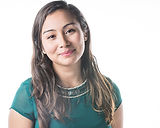


#Perspective

Cultural Competence In Healthcare & Research Training
“Helping Doctors See Patients, Broadening the Research Lens”
I'm a paragraph. Click here to add your own text and edit me. It's easy.
The Diversity Formula is designed to be an interactive, educational and entertaining training model that teaches medical and research students & professionals to recognize the cultural differences necessary to engage a changing world.
The inequities in the study, implementation and practice within the worlds of medical and technical research are as old and deep as any in our history. The idea that we would look at diversity as a boarder cultural concept is crucial for the scientific world that we are moving into.
How we do this will often define how well we move into this new world.
The Diversity Formula: Cultural Competence in Healthcare & Research Training is:
-
A series of interactive presentations designed to have application value on many levels.
-
A tailor-made program that will develop content based on your population, needs and time constraints
First, the program includes a presentation which identifies the concept of cultural competency and discusses how they have historically worked. We then address the aspirational goals that promote diversity, equity & inclusion (DE&I.)
The presentation provides facts and figures and explores how healthcare & research professionals’ have historically lacked of cultural competency and inclusive practices that impact patient and research outcomes in the real world.
Second, we use role-playing which depicts brief scenarios that demand cultural understanding. The scenes are played out to a pivotal moment and then frozen. Audience members are then encouraged to enter the scenes and try their hand at solving the problems presented. We then engage in collective discussion based on audience members’ interaction. The scenes are non-threatening and do not put participants on the defensive. The actors are trained in audience facilitation and they work with the medical professionals to integrate theory and practice.

“Absolutely wonderful. Your improv in the scenarios were right on! Very thought provoking and hit the right tenor in each scene.”
-Denise Bisaillon, Organizer SNHU Latina Perspective In Healthcare
Role playing depicts brief scenarios that demand cultural understanding.

A scene from The Diversity Formula at Southern New Hampshire University.

A scene from The Diversity Formula at the University of Michigan Medical School.
Our program is fully customizable. We will consult with you to build scenes that speak to whatever you know are the cultural competencies that are the most pertinent to your population. Some of the scenarios that we have already dealt with include:
RESEARCH:
-
Cultural Isolation (Being the First / Only one, etc)
-
Historic Role of Research in reference to Non-dominant cultures
-
A heightened awareness of underrepresented player in the room.
(How do we see and deal with systemic nature or our blind spots)
-
PI Roles, Responsibilities & Reputations
-
Graduate Student Roles, Responsibilities and Resources
-
Culture -vs- Mission (How do we navigate this new divide?)
-
Cultural Awareness and Professional Development
-
Graduate Student Research Stressors
-
And many more

The role-plays are used to accentuate the sometimes-sophisticated nature of identifying and dealing with these
non-traditional, but ever-increasing cultural markers.
MEDICAL:
-
Cultural Fear and Suspicion that Live Within Under-served Communities (and how they contribute to health disparities)
-
Religious Etiquette and Tradition within Orthodox Judaism, Islam, Mormon and Christian Scientist groups
-
Cultural Differences within underserved communities
-
Sexual Etiquette outside the traditional (mainstream) Culture (and how this applies to many of the above categories)
-
Med/ Treatment Compliance (Within all the above-mentioned groups) and how the “Patient Teach Back” method can be utilized
-
Cultural Issues that may be Complicated by Regional/Situational Trauma (people from war ravaged parts of the world, etc.)
-
And many more
Principal Presenter
Dr. Gary LeRoy, M.D.
President of the American Academy of Family Physicians

“Would you rather do this in a pretend situation where no one’s going to get hurt, or do you want to wait until you’re in the middle of a life and death situation and you don’t know what to do?”
-Dr. Gary LeRoy, Prescription for Success Presenter
Our hope is that we can work with you to build a powerful, engaging and informative workshop.
We want our participants to know that this kind of lecture is not a forced fun professional development session.
It is a professional development session made fun.
We know that people retain information better when their brains are engaged on multiple levels – we believe one of those levels is activated when people are more at ease and having fun.

Students at The Diversity Formula workshop at the University of Michigan Medical School.

“It was a pleasure working with you and the team. Your session was one of my favorites at the event. Very powerful messages, and well received.”
-Jan Wyatt/Organizer SNHU Latina Perspective In Healthcare
Our Presenters








